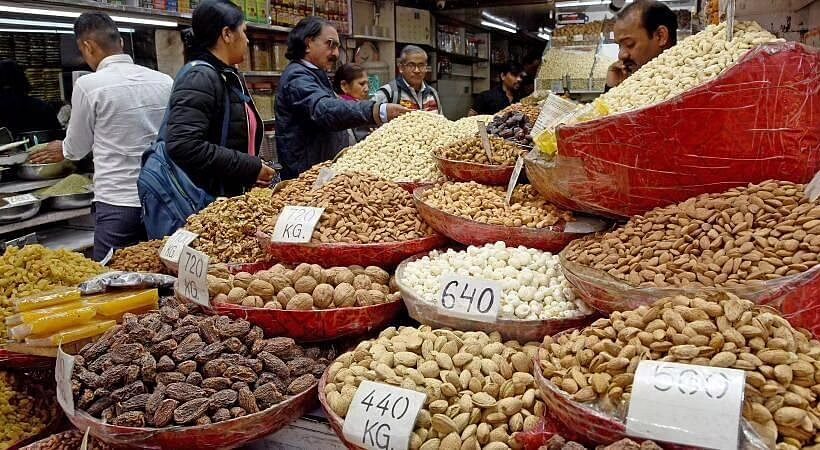As the Taliban took over Afghanistan, the militant organisation halted import and export trade with India. It is expected that blocking the transfer of commodities could affect the Indian market, creating a deficit of some goods.
India has always had cordial trade relations with Afghanistan. India exports sugar, tea, coffee, clothing, pharmaceuticals, transmission powers, cherry, watermelon, and medicinal herbs. The imports from Afghanistan to India primarily include dry fruits- 85% of the country’s dry fruits come from the South Asian nation, including dried raisin, gum, spices like hing and shah jeera, and onion.
Vijay Bhuta, president of Dry Fruit Traders Association, said that about 38,000 tonnes of material are shipped from Afghanistan each year.
India, a trade partner of Afghanistan for a long time now, has exported commodities worth $835 million in 2021, confirmed Director General of Indian Export Organisation (FIEO), Ajay Sahai.
Sahai also expressed his confidence that the long-running trade relations between the two countries would be retained in the new regime.
“I am pretty sure over a period of time Afghanistan will also realise that economic development is the only way to move forward, and they will continue with that kind of trade. I think the new regime will like to have political legitimacy, and for that, India’s role will become important for them also,” Sahai was quoted as saying.
The imports to India from Afghanistan have been stopped as the Taliban have halted cargo movement to Pakistan. From Pakistan, the goods further travel to India.
“We keep a close watch on developments in Afghanistan. Imports from there come through the transit route of Pakistan. As of now, the Taliban has stopped the movement of cargo to Pakistan, so virtually imports have stopped,” Sahai said.
The trade expert further said that the transport routes crossing Dubai and the international north-south corridors, also used for trade between India and Afghanistan, remain functional.
Ever since the Taliban took over, the banking channels between the two nations have collapsed too.
In the coming days, the prices of dry fruits in India are expected to rise.
“I will say that may not directly impact the prices, but the very fact that one of the sources of import no longer exists, speculation of increase in prices is not ruled out,” Sahai said.
India is likely to see a shortage of walnut, pine nuts, apricot, and anjeer, which it imports from Afghanistan. According to the President of Dry Fruits Association Vijay Bhuta, although the shipments from the Afghan sources are ready following a harvest of dry fruits, they cannot be transported.
Indian traders will be likely to face losses due to the halt in exports. Last year, eight per cent of the sugar produced in India had been exported to the country, but in the current situation, such exports could suffer.



















